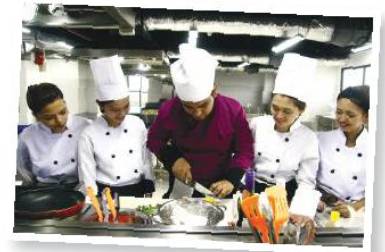Hãy nhập câu hỏi của bạn vào đây, nếu là tài khoản VIP, bạn sẽ được ưu tiên trả lời.

Tham khảo:
I find the advice about healthy eating very useful. I usually avoid eating food with too much salt or sugar, and try to eat more fruit and vegetables. But I don't pay much attention to food labels. I think I'll try to read them from now on before I buy any food items.
The last piece of advice is most useful for me. I avoid having coffee or tea before bed, but I keep reading messages and posts on my phone in bed, and then find it hard to fall asleep. I think this is an unhealthy habit. I'll try to turn off my phone before I go to bed in the future.

The text mentions three essential skills required for teenagers to become independent, which are decision-making skills, time-management skills, and life skills.
Apart from the skills mentioned in the text, some other skills teenagers need to become independent include communication skills, problem-solving skills, financial management skills, goal-setting skills, and critical thinking skills. Also, teenagers need to learn how to be emotionally intelligent and how to develop positive relationships with others.

Tham khảo:
There are similarities between the problems facing teens in many countries, including Vietnam. Cyberbullying, academic pressure, social pressure, mental health issues, substance abuse, and poverty are some of the issues that Vietnamese teens may face.
In addition to the problems mentioned in the text, there may be other problems among teenagers in Vietnam. For example, issues related to family relationships, dating and sexuality, career choices, and cultural conflicts are also common. It is important for parents, educators, and society as a whole to pay attention to the needs of teenagers and provide them with adequate support and resources to help them navigate these challenges.

1. I haven’ visited any castles or palaces in VietNam before. However, I know some of the most famous ones such as Hue Imperial Citadel, the Thang Long Imperial Citadel, and the Ho Dynasty Citadel. These historical sites are significant because they showcase the country's rich history and cultural heritage.
(Tôi chưa từng đến thăm bất kỳ lâu đài hay cung điện nào ở Việt Nam trước đây. Tuy nhiên, tôi biết một số địa điểm nổi tiếng nhất như Cố đô Huế, Hoàng thành Thăng Long và Thành nhà Hồ. Những di tích lịch sử này rất có ý nghĩa vì chúng thể hiện di sản văn hóa và lịch sử phong phú của đất nước.)
2. I haven’t seen this palace before, but I guess it is the Hue Imperial Citadel.
(Tôi chưa nhìn thấy cung điện này bao giờ, nhưng tôi đoán đó là Hoàng thành Huế.)

John was a high school student who loved playing basketball and had a passion for music. However, his experience at school was not what he had hoped for. He was often targeted by a group of students who would call him names, shove him in the hallways, and post hurtful comments about him on social media.
Despite trying to ignore the bullying, it continued to escalate, and John's grades began to suffer. He started skipping classes, feeling anxious and depressed, and avoiding his friends and family.
One day, the bullying took a physical turn when a group of students assaulted John after school. They beat him severely, leaving him with multiple injuries and a long road to recovery. The incident was captured on video and quickly went viral on social media, sparking outrage among the community.
The school administration took swift action, expelling the students responsible for the attack and implementing new policies to prevent bullying. John received an outpouring of support from his community, and he used his experience to become an advocate for anti-bullying initiatives.
Although the consequences of the bullying were severe, John's story brought attention to the issue of bullying and the need for schools to take a more proactive approach in preventing it. Through his advocacy work, John helped to create a safer environment for students and inspired others to speak up against bullying.

1. Based on the context of the picture, it seems like the students are taking a vocational course in cooking or culinary arts.
2. It's possible that students may need certain qualifications or prerequisites to apply for this course, such as a high school diploma or previous experience in cooking. However, it ultimately depends on the specific requirements of the course and the institution offering it.
3. Students in this course likely expect to learn various cooking techniques and recipes, as well as gain a deeper understanding of the culinary arts. They may also learn about food safety, kitchen hygiene, and restaurant management if the course covers those topics. Additionally, students may hope to gain hands-on experience in cooking and receive feedback on their dishes from their instructor. Overall, the goal of this course is likely to help students develop their skills and knowledge in the culinary field.

A: Have you ever been awake all night or most of the night? If so, when/where/why?
B: Yes, I have. I remembered when I was in grade 9, I usually stayed up late until 2.00 to 3.00 A.M. to do my homework as well as prepare for my big examination to enter high school. It was really tiring and stressful.
A: Have you ever felt very cold? If so, when/where/why?
B: Yes, I have. That is when I went to Da Lat last year. Because I live in Ho Chi Minh city, I get used to hot weather. Therefore, when I came to Da Lat, the weather was so low, just about 15 degrees Celsius. I felt extremely cold.
A: Have you ever experienced high altitude?
B: No, I haven't. You know I'm a kind person who is very scared of heights. I also don't have any intention to try it one time in the future.
Tạm dịch:
A: Bạn đã bao giờ thức cả đêm hoặc gần như cả đêm chưa? Nếu vậy, khi nào/ở đâu/tại sao?
B: Vâng, tôi có. Tôi nhớ khi tôi học lớp 9, tôi thường thức khuya đến 2 giờ đến 3 giờ sáng để làm bài tập về nhà cũng như chuẩn bị cho kỳ thi quan trọng của tôi để vào trường trung học. nó thực sự mệt mỏi và căng thẳng.
A: Bạn đã bao giờ cảm thấy rất lạnh chưa? Nếu vậy, khi nào/ở đâu/tại sao?
B: Vâng, tôi có. Đó là khi tôi đến Đà Lạt năm ngoái. Vì tôi sống ở thành phố Hồ Chí Minh nên tôi đã quen với thời tiết nóng bức. Vì vậy, khi tôi đến Đà Lạt, nhiệt độ rất thấp, chỉ khoảng 15 độ C. Tôi cảm thấy vô cùng lạnh lẽo.
A: Bạn đã bao giờ trải nghiệm độ cao chưa?
B: Không, tôi chưa. Bạn biết đấy tôi là một người tốt bụng và rất sợ độ cao. Tôi cũng không có ý định thử nó một lần trong tương lai.

Bài tham khảo
The quotation means that success and good luck often come to those who work hard. Hard work is the foundation upon which success is built, and people who work hard are more likely to achieve their goals and experience positive outcomes.
I think the quotation is true, to some extent. Hard work is undoubtedly an important factor in achieving success, and it can often lead to good luck and positive outcomes. However, luck also plays a role in success, and sometimes people who work hard still face obstacles and setbacks that are beyond their control. Therefore, while hard work is important, it is not always a guarantee of success or good luck.
Tạm dịch
Câu danh ngôn mang ý nghĩa thành công và may mắn thường đến với những ai chăm chỉ. Làm việc chăm chỉ là nền tảng để xây dựng thành công, và những người làm việc chăm chỉ có nhiều khả năng đạt được mục tiêu của họ và trải nghiệm những kết quả tích cực.
Tôi nghĩ rằng trích dẫn là đúng, ở một mức độ nào đó. Làm việc chăm chỉ chắc chắn là một yếu tố quan trọng để đạt được thành công, và nó thường có thể dẫn đến may mắn và kết quả tích cực. Tuy nhiên, may mắn cũng đóng một vai trò trong thành công, và đôi khi những người làm việc chăm chỉ vẫn phải đối mặt với những trở ngại và thất bại nằm ngoài tầm kiểm soát của họ. Vì vậy, trong khi làm việc chăm chỉ là quan trọng, nó không phải lúc nào cũng đảm bảo cho sự thành công hay may mắn.

Bài tham khảo
A: Who is the high flyer you admire?
B: I admire Elon Musk.
A: How did you get to know about him?
B: I first heard about him through his company Tesla and then I researched more about him.
A: What is the reason why you like him?
B: I like him because he is a visionary and always thinks outside the box. He is not afraid to take risks and tries to make a positive impact on the world.
A: What do you think decides his success?
B: I think his ability to innovate and his willingness to take risks are the main factors that have led to his success. He is not afraid of failure and is always looking for ways to improve and innovate.
Tạm dịch
A: Ai là người bay cao mà bạn ngưỡng mộ?
B: Tôi ngưỡng mộ Elon Musk.
A: Bạn biết về anh ấy như thế nào?
B: Lần đầu tiên tôi nghe nói về anh ấy thông qua công ty Tesla của anh ấy và sau đó tôi đã nghiên cứu thêm về anh ấy.
A: Lý do tại sao bạn thích anh ấy là gì?
B: Tôi thích anh ấy vì anh ấy là người có tầm nhìn xa trông rộng và luôn suy nghĩ vượt trội. Anh ấy không ngại mạo hiểm và cố gắng tạo ra tác động tích cực đến thế giới.
A: Bạn nghĩ điều gì quyết định thành công của anh ấy?
B: Tôi nghĩ khả năng đổi mới và sẵn sàng chấp nhận rủi ro của anh ấy là những yếu tố chính dẫn đến thành công của anh ấy. Anh ấy không sợ thất bại và luôn tìm cách cải tiến và đổi mới.


Khoa is a 16-year-old high school student who loves spending time with his group of friends after school. They usually go to the mall, play sports or video games, or just hang out at each other's houses. However, Khoa's parents are becoming increasingly concerned about his friends' behavior and influence on him. They've noticed that Khoa is staying out later than usual, neglecting his school work, and acting more rebellious and disrespectful at home.
Khoa's parents have tried to talk to him about their concerns and suggest that he spend less time with his friends or choose better friends, but Khoa resists their efforts. He argues that his friends are cool and fun to be with, and that his parents are just being overprotective and boring.
The situation becomes more tense when Khoa's parents find out that some of his friends have been caught smoking and shoplifting. They forbid Khoa from hanging out with them and threaten to punish him if he disobeys. Khoa feels torn between his loyalty to his friends and his respect for his parents' authority.
In this scenario, Khoa and his parents are facing a common problem of conflicting values and priorities. Khoa wants to belong to his peer group and have fun, while his parents want to protect him from negative influences and ensure his future success. It's not easy for either side to compromise or understand each other's perspective, but communication and empathy can help bridge the gap.